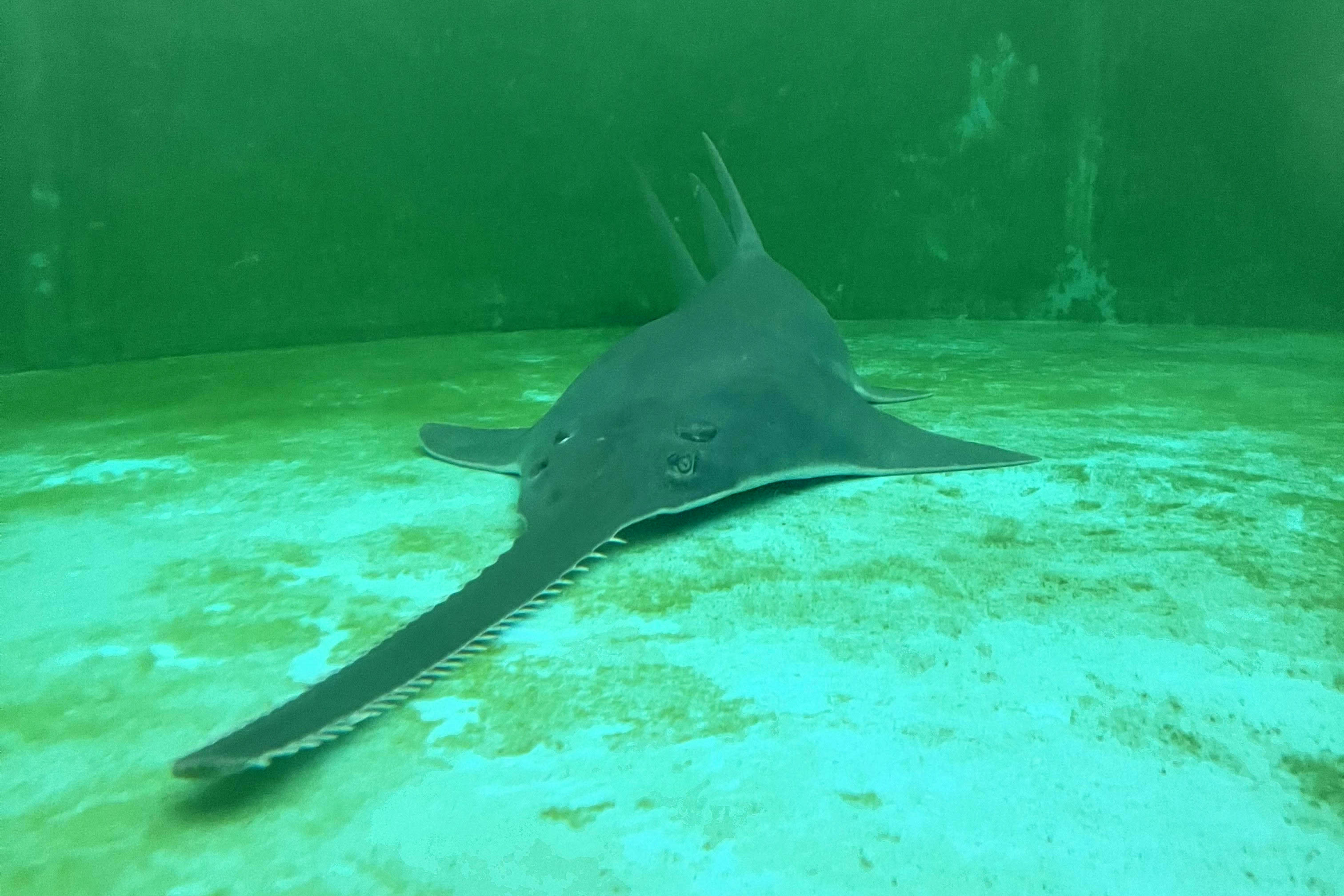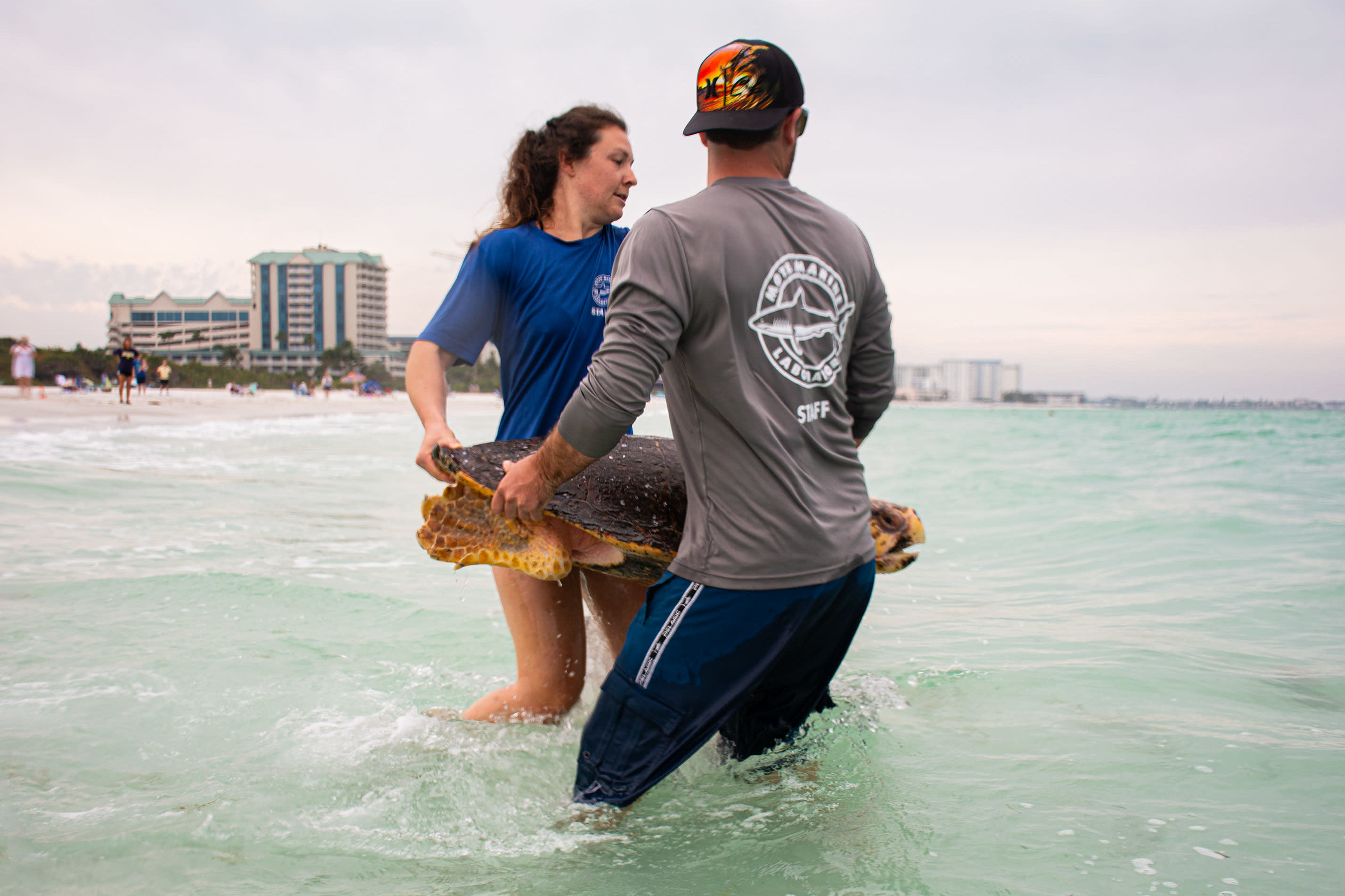Mote Locates Five Whale Sharks in Southwest Florida Waters
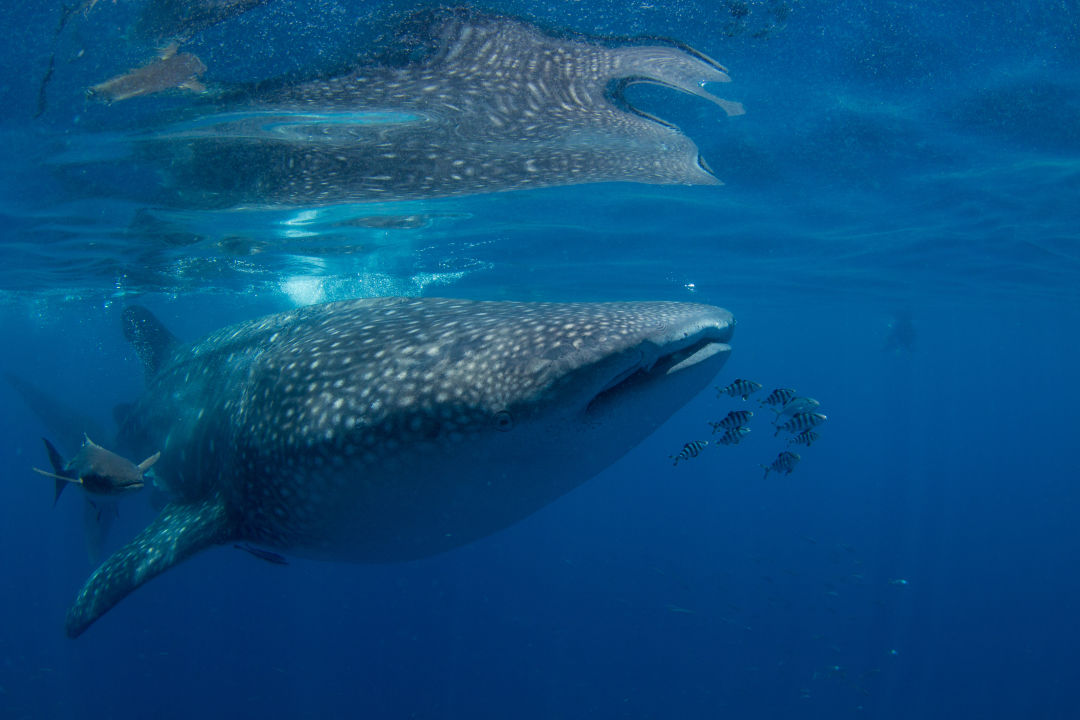
Earlier this month, news broke that five whale sharks had been spotted off Anna Maria Island—and today, Mote Marine Laboratory & Aquarium reports that all of them have been photographed and two have been successfully tagged with tracking devices, thanks largely to reports by the public.
“It is not uncommon for whale sharks to be spotted feeding in the Gulf this time of year, but the duration of their stay is longer than in previous years,” says Dr. Robert Hueter, senior scientist and director of the Center for Shark Research at Mote. “Reported sightings are usually scattered, but the sharks’ locations have stayed pretty stable, as most sightings have been about 30-40 miles off Anna Maria Island and Longboat Key.”
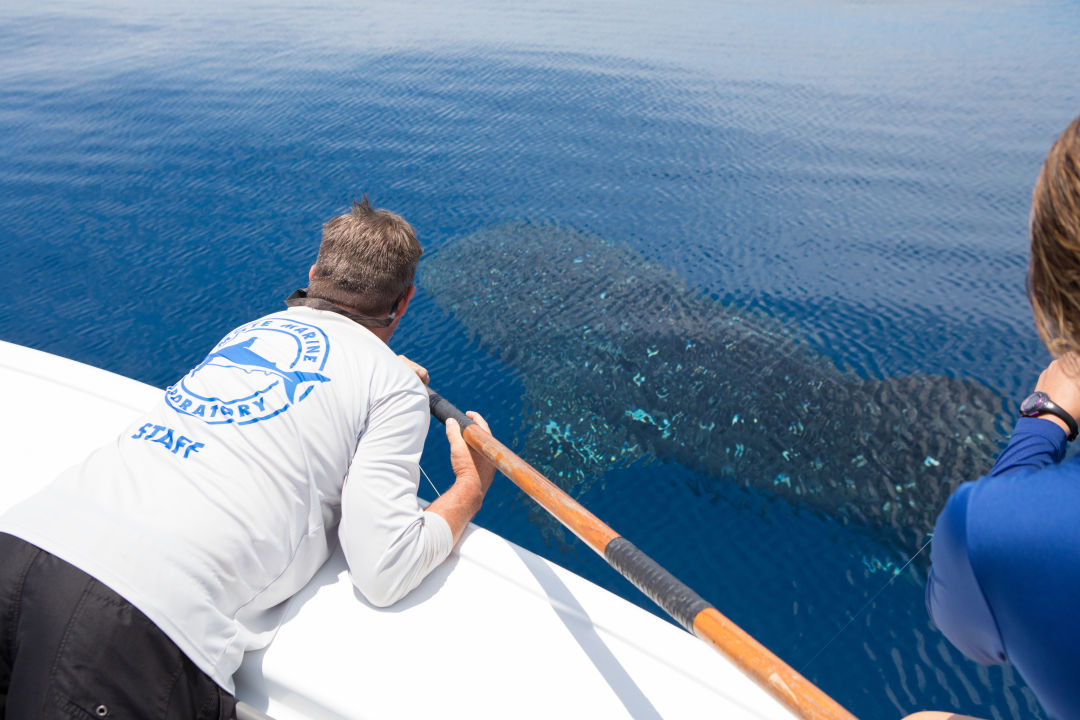
This time, the gentle, polka-dotted whale sharks—the largest fish in the world—were spotted offshore of Longboat Key and New Pass, feeding on fish eggs and plankton, researchers suspect. The first shark, a 16-foot-long male nicknamed “Colt,” was tagged around 12:30 p.m. on June 14, about 40 miles offshore of Sarasota County. As the Mote team traveled back to land, they found and tagged a 22- to 25-foot female nicknamed “Minnie” and were able to photograph her unique spotted pattern for later identification. Three more whale sharks were found and photographed in a group closer to shore. In total, the expedition involved about six hours of searching—and the resulting data will be well worth the effort, Mote's scientists say.
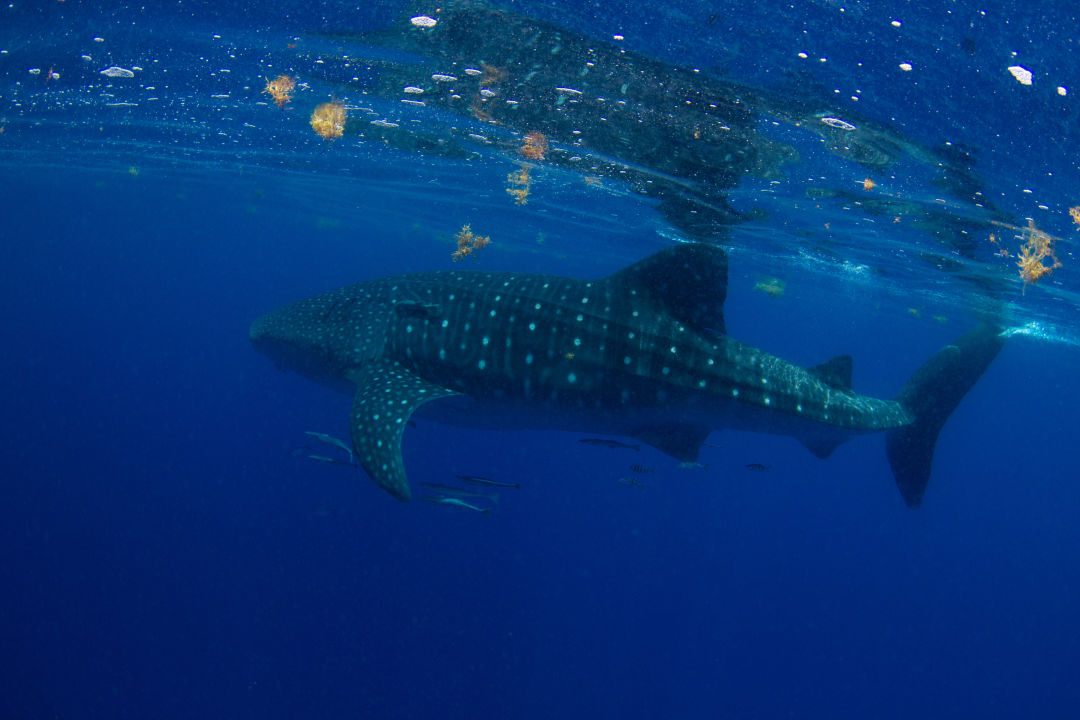
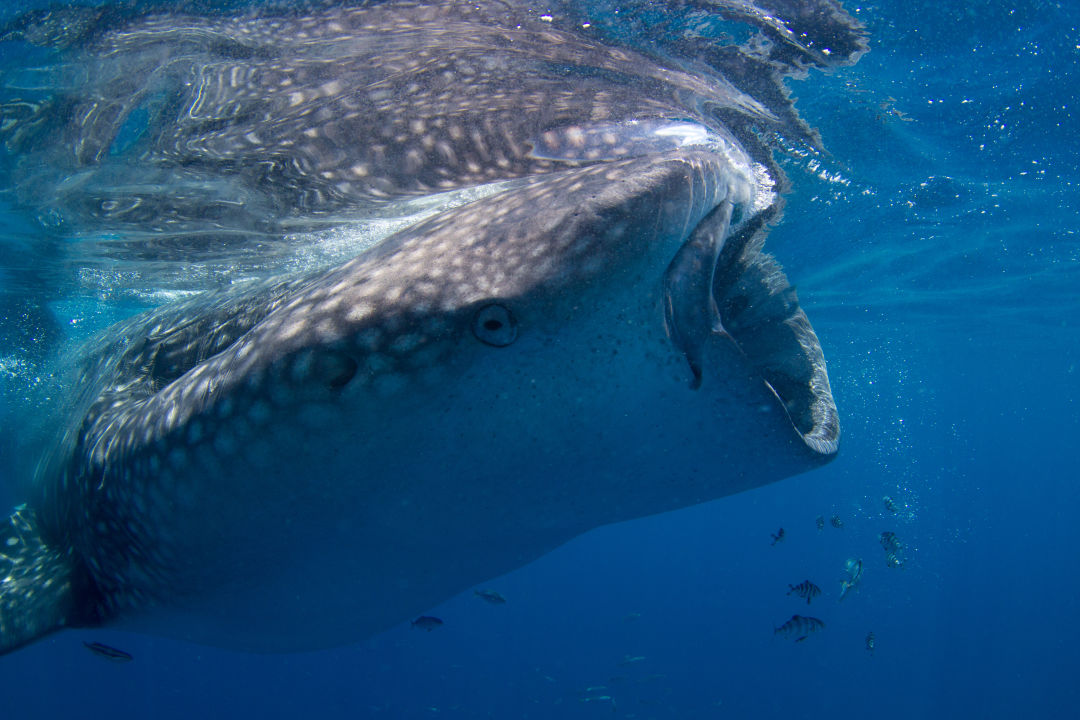
“The tags incorporate archival data collection and storage as well as Fastloc GPS location detection,” explains Jack Morris, senior biologist at Mote. “This configuration provides GPS location data that can be received via satellite, and long-term depth and temperature data that can be retrieved once the tags release in six months.”
The photos of the sharks’ unique spot patterns that Mote scientists captured will be sent to Wildbook for Whale Sharks, an online database of whale shark encounter reports and pictures used to identify individual animals for research.

